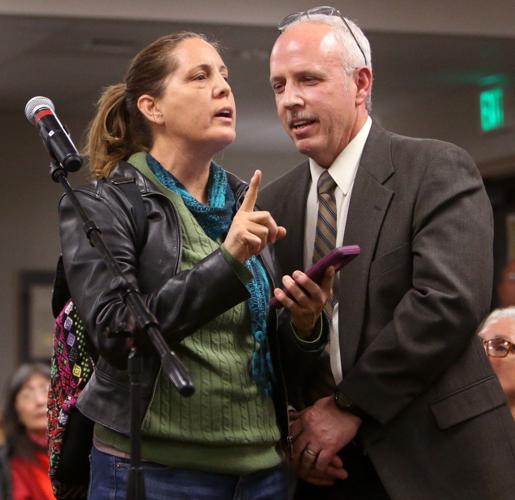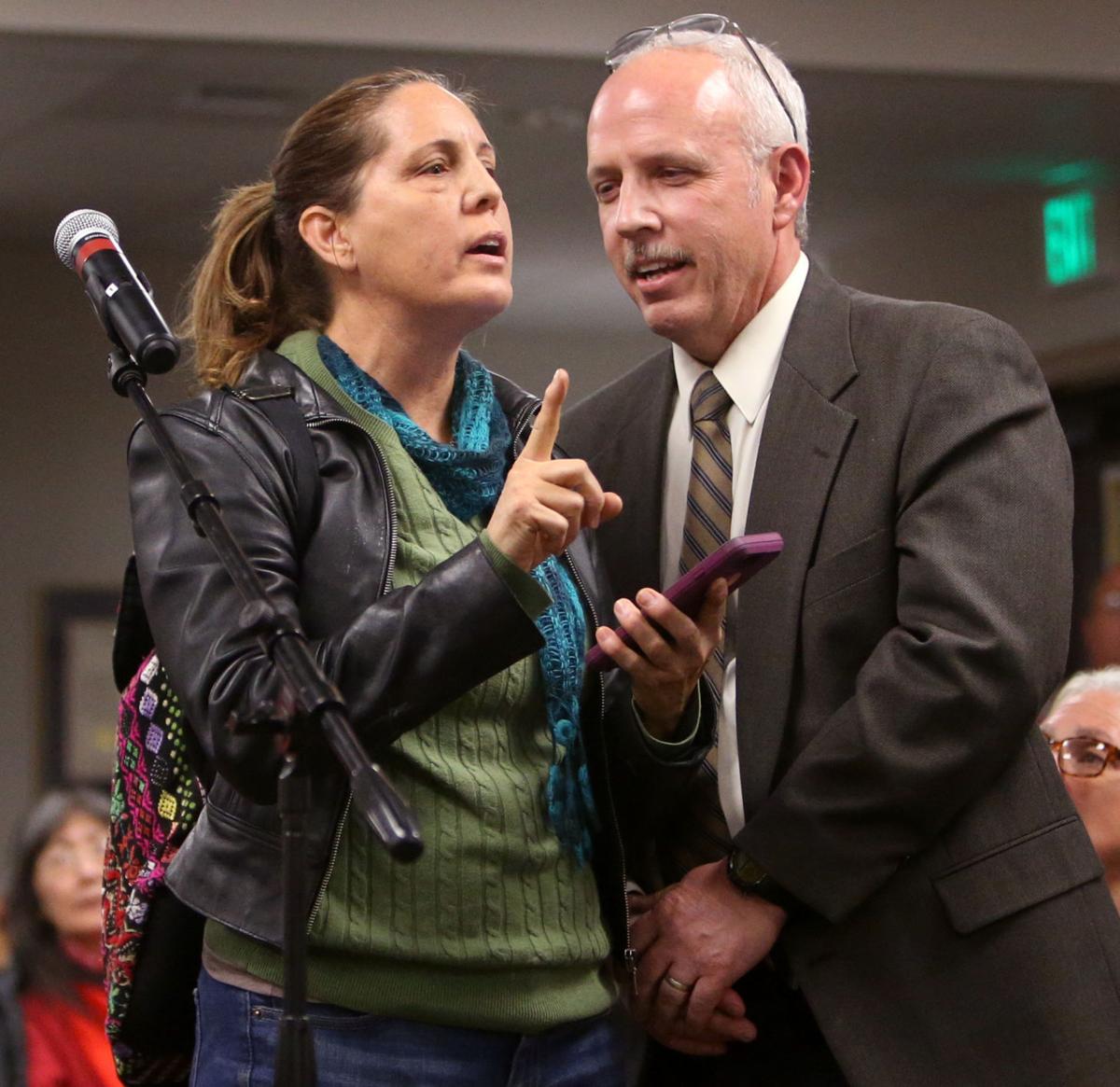The hot local debate over Monsanto’s proposed project in Pima County has focused on the big issues and entities, but it is overlooking some crucial players who could make or break the deal.
It’s not all about GMOs.
It’s not all about glyphosate.
It’s not even all about Pima County and the supervisors’ upcoming decision on possible tax breaks, scheduled for Feb. 21.
Those have been among the hottest topics of debate at the five community meetings held over the proposed Monsanto project, a giant greenhouse that would be built on a 155-acre property in Avra Valley. “No Tax Breaks for Poison Profiteers” read a sign carried by attendees at the Wednesday night community meeting I attended on Tucson’s west side. That was the tenor of many of the criticisms.
But what most people are ignoring are the little taxing districts that could be affected by the designation of Monsanto’s property as a foreign trade zone. Those entities — Marana Unified School District, Pima Community College, and the Pima County JTED — each have leverage that may almost amount to a veto of whether Monsanto gets the designation and saves millions in property taxes. And they’re not really using it.
Let’s step back and review what Monsanto is asking for. It’s not permission to build and operate its 7-acre greenhouse — the company can do that if it wants without asking anyone’s permission. What it’s asking for is designation as a foreign trade zone, which, under Arizona law, would drop the company’s property tax rate assessment ratio from 15 percent to 5 percent and reduce its annual tax burden by about two-thirds.
This doesn’t mean the county would actually lose money if the foreign trade zone is designated. The county would still be collecting hundreds of thousands of dollars more in taxes from that property than it had previously, when it was abandoned farmland.
But, in what amounts to an economic-development trade-off, the county would collect less than it’s legally entitled to if Monsanto builds on the property and meets certain economic development measures. In other words, there’s a solid economic-development argument from the county’s perspective, leaving aside environmental contentions.
What’s often overlooked is that these small districts also are encouraged to sign off on the deals and could potentially block them with strenuous oppositions. That means they’re in a position to make good deals for themselves and taxpayers — or, in the alternative, block the tax breaks altogether, potentially blocking the entire project. It’s not that they should want to block the project, but that Monsanto is asking for a lot, and the districts should get something in return, at least being held harmless.
In these foreign trade zone designations, Pima County advises the business to make separate agreements with the other taxing districts. These agreements usually come in the form of a “PILOT,” the abbreviation for Payment in Lieu of Taxes, which would make up the difference in what the company would have paid with a 15 percent rate.
Patrick Cavanaugh, the county’s deputy director of economic development, put it this way in an email to me: “We encourage Monsanto or any of the other companies we’ve previously executed FTZ PILOTs on to reach agreement with the education districts. Obviously the agreements have to be concluded between the company and education districts before it goes in the multiparty agreement that Pima County assembles and which goes before the Board of Supervisors for a vote.”
Marana schools have already cut their deal — badly, in my view. As my colleague Murphy Woodhouse reported in November, that district accepted a $500,000 payment to its foundation instead of being made whole through a PILOT agreement. That saved Monsanto $3.4 million in taxes, though it did make additional money available for helping poor students.
The district’s deal made some sense, because Monsanto’s tax payments wouldn’t have actually increased the district’s general-fund revenue — they just would have diluted the tax burden among all the district’s taxpayers. But in the context of the savings that the Marana district gave Monsanto, and the leverage the district perhaps unknowingly held over the deal, the $500,000 payment was a pittance.
Of course a company Monsanto’s size would prefer to give a $500,000 donation rather than pay $3.4 million more in taxes through a PILOT agreement. But couldn’t the district have gotten more?
The Pima County JTED is almost too small a player to make a difference. Its tax revenues from the property will be around $5,000 if the project is built, and the JTED district has already approved a deal with Monsanto. If Monsanto gets the FTZ designation, it will pay any difference in taxes to the district through a PILOT.
Pima Community College, on the other hand, had a chance to strike a deal in November, but its Governing Board rejected it. This is the worst of the options available. The deal offered would have been similar to the one the JTED board accepted, but at a much bigger, six-figure scale. In essence, Monsanto offered the board to make a PILOT payment that would make up the difference between the higher tax rate and the foreign trade zone rate.
The PCC board voted no, citing the objections of a faculty member who spoke vaguely of Monsanto’s corporate misbehavior in the call-to-the-audience before the meeting. So, as of right now, the college will only get paid taxes from Monsanto at the lower, FTZ rate of 5 percent, if the project is built. That wouldn’t hurt the college — it’s still able to collect the same amount of revenue from all taxpayers — but it means the rest of us pay a little bit more than we would have.
PCC has been told a new offer will be coming from Monsanto, spokeswoman Libby Howell told me Friday. If it’s made, it would mean Monsanto makes a PILOT payment that makes the taxpayers whole despite the earlier no vote. But that’s just informal word of a deal that hasn’t actually been offered to board members who put the taxpayers at risk for no particular reason.
In other words, vague objections kept the college from making the smart move and cutting a deal that ensures we the taxpayers don’t pay more than we need to — something all these districts should be doing.







